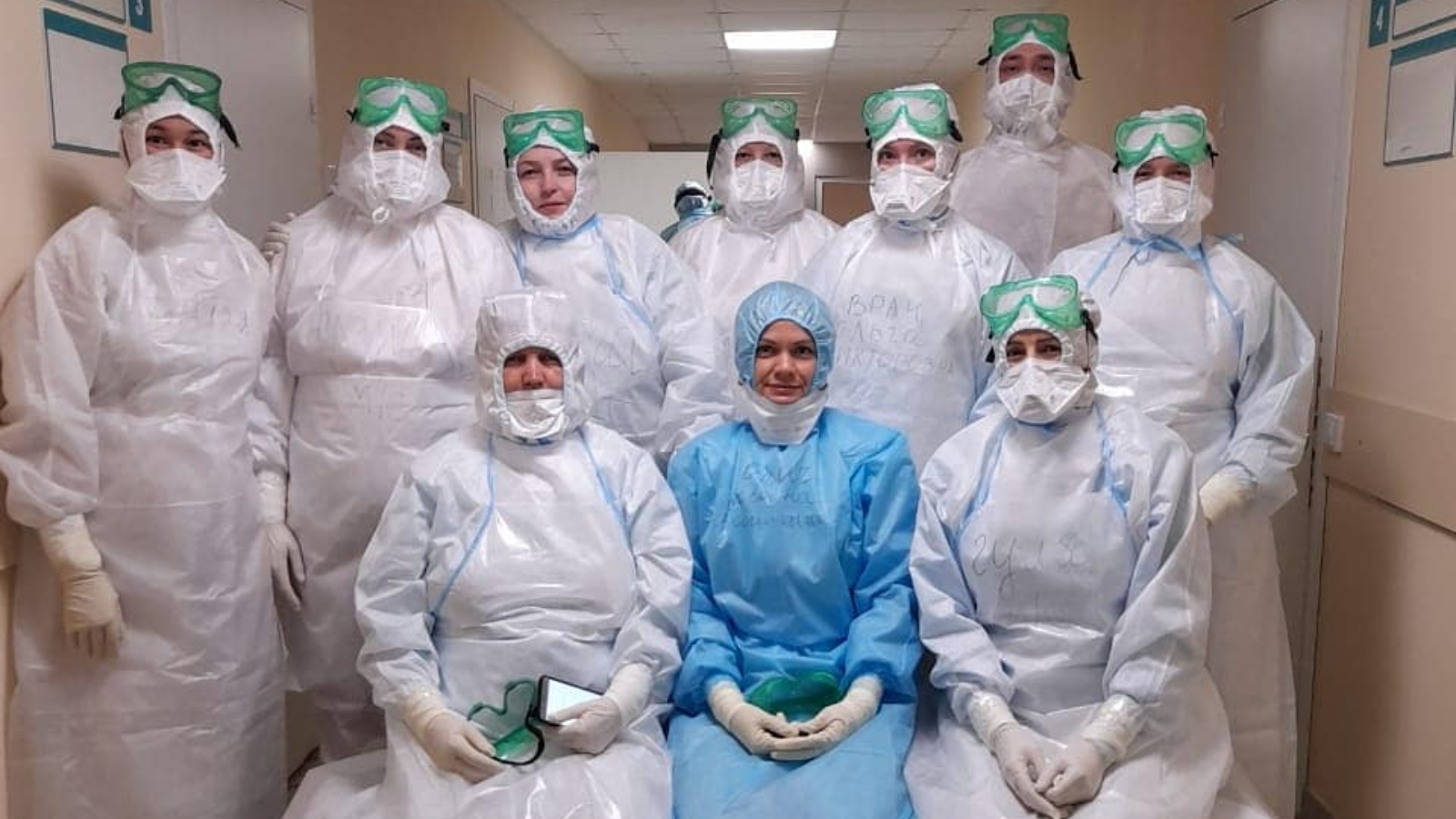Nizhnekamsk doctors told about working in the red zone

Last week, the infectious diseases hospital of the Nizhnekamsk CRMH completed a large shift switch: healthcare providers who worked a two-week shift returned to their native departments, and their colleagues replaced them. After leaving the red zone, doctors shared their feelings and said that patients' numbers are increasing.
Dr. Elmira Magomedova, the 2d Gynecology Department's head at the Nizhnekamsk CRMH, worked her first two-week shift.
"For me, the hospital's patients are special. They are hard to bear the disease and are afraid of the worst outcome, suffer, but remain great fellows – they try, fight and fulfill our assignments. The patients are very grateful. They need round-the-clock monitoring because everything seems okay, and after 5 minutes, the condition may deteriorate sharply. To catch these moments, you need to continually monitor patients and take care of them, which is what we did. Therefore, the 12-hour shift flew by quickly, we went out for lunch for 15-20 minutes, and quickly returned to the red zone", said the doctor.⠀
"In a hospital, as in any other department, team spirit is important. I was fortunate with our shift: wonderful doctors who worked several shifts in the red zone, and on my floor, I worked with nurses from the home department. They are already professionals and clever, and they also showed themselves brilliantly here, " she reports.
The 2d Surgical Department Dr. Albert Arslanov also worked the first shift in the Infectious Diseases Hospital.
"It was hard because there are patients with a therapeutic profile – they need to be treated conservatively. That's why I was worried – I was afraid that I would not be able to cope with an unfamiliar work type. And as soon I got used to it, as the shift was already over," Dr. Arslanov laughs.
The doctor was on duty on the 6th floor in the Sorting Department; the work there is stressful - we admitted 22 people the other day. These are mostly patients in moderate severity conditions; everyone has concomitant diseases – diabetes, asthma, and many overweight. And they all lead relatively healthy lifestyles – they don't smoke or drink.
"Now comes the season of seasonal cold. Thus, many people confuse the common cold with coronavirus and start to panic when the nose is blocked, and the sense of smell lost. Our patients come to the hospital with a cough, a fever that does not subside for several days, but none of them has a cold. Therefore, do not make a diagnosis, do not wind yourself up, and if you feel unwell, call a doctor at home – he will collect an anamnesis and decide what to do next," the doctor advised.
For Leysan Shamsutdinova, a General Practitioner in the Therapy Department of the NCRMH, the hospital's third shift was one of the easiest. There was no such flow of heavy patients as in July, and the heat outside was not under 40 degrees this time.
As the doctor admits, the home department's situation is also difficult, and in therapy, and in the red zone, doctors perform the same work. Patients should be treated in anti-plague suits only in the hospital. "It is emotionally challenging not to see your children and family. In general, I managed to get used to the hospital in three shifts. But still, the coronavirus continues to surprise with the fact that each patient carries it individually. Someone is asymptomatic, others are in a mild form, others do not have a fever, and someone develops pneumonia at lightning speed in just two days, a CT scan shows 3-4 stages of lung damage and the patient begins to suffocate."
Dr. Shamsutdinova notes that in the hospital, it is crucial to work as a team and support each other – this helps patients get better faster: "I thank the doctors Olga Viktorovna Nosova and Alexey Nikolaevich Krokhalev, and, of course, the nurses with whom I worked in the same team – Elena A. Akhmetshina and Gulfania M. Petrova, and our nurse aid Alsu M. Shapoval. People should not relax since the incidence is growing. So please wear a mask and clean hands. Take care of yourself and your loved ones!"